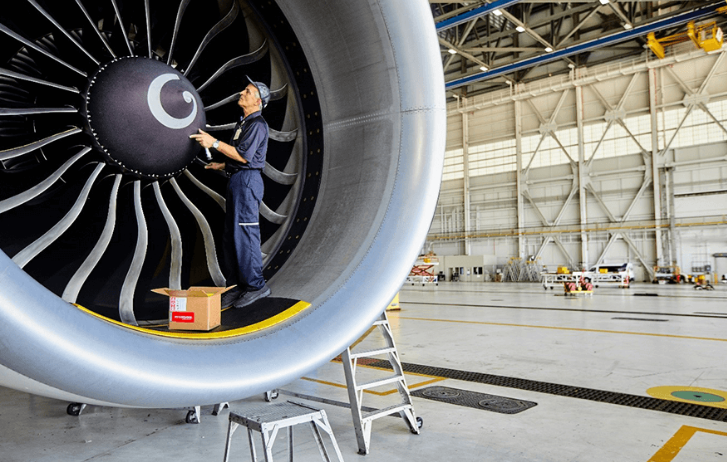
Where Do Old Planes Go When They Retire?
By FedEx | First published: December 12, 2023 Updated: February 18, 2025
A one-of-a-kind aircraft is jetting around the world as The Flying Eye Hospital, delivering quality eye care to underserved communities around the globe.
- An old FedEx MD-10 has been given a new lease of life as The Flying Eye Hospital, traveling to and from communities in need by air.
- The decommissioned aircraft is part of a charitable initiative in collaboration with Orbis International, an ophthalmic teaching and training hospital.
- Retired FedEx pilots also volunteer for the scheme, helping to deliver quality eye care to underserved communities in Asia and beyond.
Have you ever wondered what happens to old planes that are taken out of service?
According to the International Air Transport Association (IATA), around 16,000 commercial passenger and cargo aircraft have been retired worldwide in the last 35 years, with 11,000 more retirements expected over the next decade. But what happens to these aircraft once they’re officially decommissioned?
In most cases, a retired plane will either be sold to a new owner or head to the scrapyard. IATA also estimates that if decommissioned properly, 90% of aircraft parts can be reused or recycled.
From cargo plane to Flying Hospital
How many years do airplanes fly before being retired? On average, commercial aircraft are replaced every 22 years, but with careful maintenance work, they can continue to fly for 30 years or more.
Today, FedEx operates almost 700 aircraft, including Boeing 777F and 767Fs. With aircraft being upgraded regularly, end-of-life aircraft management is a core part of managing our fleet.
And now, one special ex-cargo plane has gone on to transform lives around the world.
A FedEx MD-10 has embarked on a truly unique transformation to become a mobile teaching hospital, fitted out with a state-of-the-art operating room, recovery room, and classroom. Orbis International’s The Flying Eye Hospital is a fully accredited ophthalmic teaching unit. It travels the world providing vision-saving eye surgeries and training to local eye care teams.
To date, the Flying Eye Hospital program has delivered world-class training to eyecare teams in 95 countries. We recently sponsored a mission to the Can Tho region of Vietnam, providing hands-on training to 52 eye care professionals, including ophthalmologists, nurses, and biomedical engineers.
These projects enable Orbis staff, volunteers, and partner companies to work collaboratively to bring an end to preventable blindness, improving access to quality eye care one patient at a time.
The ex-FedEx pilots that make our flying hospital possible
It takes a special skillset to operate and maintain older aircraft. Luckily, we have ample experience in this area. At one time, the MD-10 was the backbone of the FedEx fleet for many years, with over 184 in use at once.
Today, we’re gradually transitioning to newer, more efficient aircraft, with the very last MD-10s grounded in December 2022.
One retired FedEx pilot has been volunteering for Orbis for 10 years and is determined to keep the Flying Eye Hospital going for as long as possible. “As an older airplane, we need to treat it like the piece of gold treasure that it is - so we’re very careful with it,” he shared.
As one of the few airlines capable of operating the MD-10 safely today, we provide Orbis with aircraft parts, maintenance, and pilot training. FedEx pilots volunteer their time to navigate the plane around the world on various missions and projects.
FedEx staff around the world also play an important role in supporting Orbis missions, assisting with ground handling when the Flying Eye Hospital arrives at its destination.
Making a positive difference and Delivering For Good
At FedEx, we connect people and possibilities, working to make our world a better place. As the world’s largest cargo airline, we see The Flying Eye Hospital program as a unique opportunity to use our resources and operational strength to help address the needs of underserved communities.
For more than 30 years, we’ve supported the Orbis program through financial donations, in-kind shipping and helping to maintain and fly this one-of-a-kind aircraft. Our latest commitment pledges to provide US$3.5 million in financial, logistical, and operational support until 2026.
Today, we’ve exceeded this ambitious goal and remain committed as ever to using our resources and network to help the communities in which we operate.
What drives this passion? It’s our focus on people. Describing one of their proudest moments as a volunteer, a retired FedEx pilot recalls the moment a child saw their parent for the first time:
“As soon as they see their parent for the first time, it’s more than a smile of happiness – it’s familiarity and love that touches me every time.”
***
To learn more about how FedEx is making an impact around the world, check out our FedEx Cares page.
SHARE THIS STORY
- Generative AI: A New Frontier
- How To Ship A Giant Panda
- How To Make Freight Shipments Work For Your Small Business
- The Rise Of Intra-Asia Trade: Opportunities In The China-Southeast Asia Corridor
- Where Do Old Planes Go When They Retire?
- What’s So Dangerous About Coconuts? Your Guide To Dangerous Goods Logistics
Sign up now and save on your shipping rates!
Sign up now and earn discounts by shipping instantly with FedEx Ship ManagerTM at fedex.com.
Recommended For You

Impacting Over 50 Million People For Our 50th Birthday
We set an ambitious goal to transform the lives of millions across the globe.
Read More
How To Ship A Giant Panda
As part of our expertise in shipping live animals and rescuing wildlife in need, FedEx has transported over 20 giant pandas in Panda Express planes.
Read More
From Fried Chicken To Jet Fuel: The Future Of Sustainable Aviation
Your used fried chicken oil might be powering greener aviation. Here’s a look at what sustainable jet fuel is and how it can help us reach net-zero.
Read More

